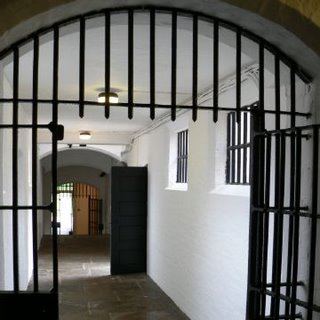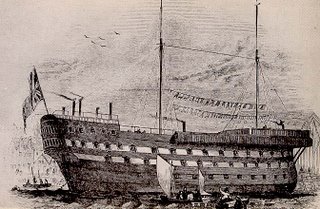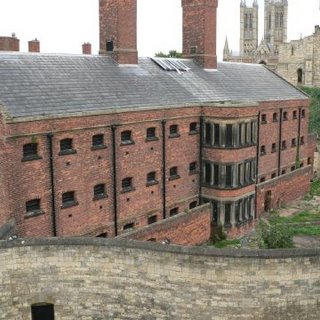"Are there no prisons? Are there no workhouses?"

posted by k
British prisons are nearly full. There's a panic about where to put people.
There are Bridewells in the courts that can be used. The possibility of prison ships ("the hulks") is being raised again. I have even seen references to the single cell in the House of Commons, though no-one thinks that will be used yet.

The debate about justice seems to have changed lately. The main questions asked are:
1. what should be illegal?
2. how can society be policed?
3. how many people can we imprison - and for how long?
It's hard to get away from those questions and ask new ones. It's hard to imagine a society that isn't heavily policed or that doesn't imprison large numbers of people. It's hard to imagine a society in which fewer activities are illegal. Radio 4's debate on what law should be repealed was unusual. But it looked for a single law amid a welter of new legislation and new crimes.
It's worth trying to imagine a society drawing up its laws from scratch. Such a society might be concerned not with illegality, but with justice. Justice encompasses victims as well as criminals and should involve society as a whole. Justice might be concerned that everyone, regardless of income, has free and equal access to the law. Justice might be as concerned with redressing wrong and preventing future crime as with punishing.
If we started from scratch, the first questions we might ask about the police are: who should police society? and, what must the police do? A police force that is separate from society runs the risk of becoming an institution that protects itself and conceals its flaws. A society starting from scratch might feel anxious at the appointment of spies (and the police must spy on society) except in particular, urgent cases.
Violence, theft, rape and murder happen. Not all crimes are committed by the poor. Some crimes occur equally in all social groups. Other crimes are committed by the rich and powerful. The poor are frequently victims. Crimes and cruelty happen even though they are against the law - and even though punishments are severe.

The problem with crime is not just one of laws, policing and punishment - though crimes are, by definition, created by laws (if it's not illegal, it's not a crime). The focus on laws, policing and punishment directs public and political debate away from even more important questions. Why do people hurt and defraud one another? Is it possible to have a society in which all humans are valued? Is it possible for human beings to take responsibility for one another?
If we can't address these questions and move away from the focus on laws, policing and punishment we shall hurtle faster towards the repressive surveillance society which is the totalitarian's dream.


0 Comments:
Post a Comment
<< Home